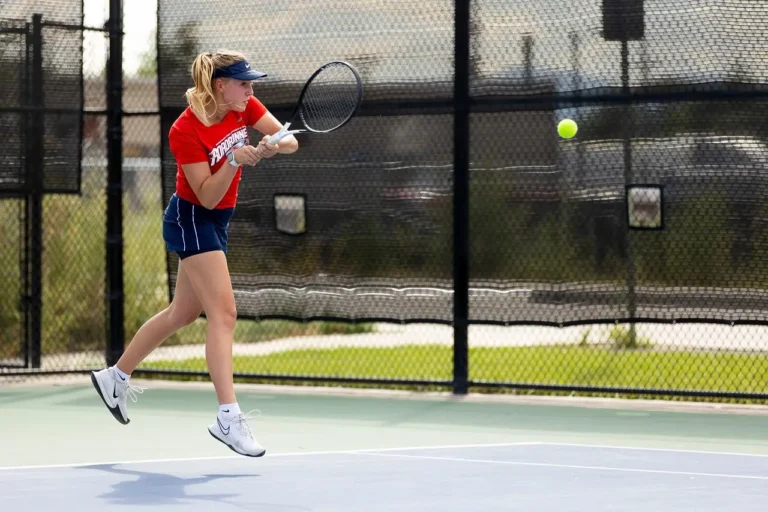
Well-being and Mental Health in Student Athletes
Understanding the Impact of Sport, Lifestyle, and Environment on Student Athletes’ Mental Health
Mental health in athletes is an important topic receiving more and more attention today due to its impact on overall well-being. Why is mental health important for student athletes? Placement Specialist Immie Cowper from Keystone Sports Germany explains further the various aspects of mental health, how to improve mental well-being, and which resources are available to student-athletes.
What is Mental Health, and Why is it Important?
The overall topic of health encompasses three areas: physical, mental, and social well-being. When each area is seen to be complete, meaning that when someone is accomplished in each of these elements, their well-being can be successfully fulfilled. The opposite can be seen when someone is lacking in one or more of these areas, which can result in a condition of ill being.
Mental health is a specific segment within the area of health and well-being, and mental well-being enables people to cope with stressors, realize their ability, learn, and work well. Achieving a good mental health state is the pillar for growth.
So why is mental health so important? Well, although it is a silent aspect to our health and our lifestyle, it directly affects how we think, feel, and act. The condition of someone’s mental health will determine how well they can handle pressure, how they relate to others, and whether they are able to make healthy choices. All these factors are certainly significant in the student-athlete lifestyle!
The Initial Move to Study Abroad as a College Student-Athelte
Moving away from home can bring up all the emotions and feelings. Excitement for what’s ahead, happiness for the school and coach you’re joining, sadness for leaving your friends and family, nerves for the unknown, stress for making sure you’ve remembered everything, and even a sense of achievement for all the work you’ve put in to get this far! It is completely normal, and even expected, to feel like you’re on a rollercoaster of emotions!
Let’s take Lilly Stienemeier as an example, a fellow Keystone Sports athlete from Germany who just graduated from MSU Denver, she said one of her most challenging moments was the initial move:
“Moving to a new country on your own, without knowing what to expect or where to go. Of course, I was excited, but it was also scary at the same time too. It is a big step for anyone, but especially when you are 18 years old”.
It is in these situations when self-kindness is so important. Also, it can be difficult and stressful to handle the unknown, but your coaches and teammates fully understand your situation and are there to help, ask as many questions as you need and try not to put too much pressure on yourself to have everything under control.
How Does Being a Student Athlete Affect Your Mental Health?
Being a student-athlete requires focus and attention in academics and athletics; both requiring a lot of time, energy, and hard work. Not only this but being on a team and representing your school means you have teammates and coaches who rely on you to be the best you can.
Being a student-athlete requires a great deal of responsibility and organization to ensure all the different aspects are taken care of, and you can show up day-in, day-out. A busy schedule can be overwhelming, tiring, and stressful to manage, so this is why it is important to check in with yourself daily and make sure you are taking care of yourself mentally and physically. You’ll have a lot to handle – from classes attendance, homework, group projects, to athletic responsibilities of practice, gym, rehab, and recovery. It may not always be easy and can be overwhelming, but it is also these exact reasons why student-athletes love their time at college! At Keystone Sports we often hear that it is very hard work, but you learn to cope, grow, and thrive in the lifestyle!
When times are tough, always remember that taking care of your mental health can help your athletic performance and aid in your personal growth – your coaches and teammates are also there to help, so take advantage of being around supportive figures!

Importance of Exercise and Diet on Mental Health for Student Athletes
We all know that being physically active has a great influence on our physical health, but also aids in our mental well-being. Now, of course, as student-athletes, it is near impossible to have an inactive lifestyle; however, athletes often strive for perfection and put a lot of pressure on themselves which can reduce the enjoyment and the mental benefits that exercise naturally has.
A helpful tip to aid in the mental strain and pressure is to set realistic goals. Goals which require energy and work (so they aren’t too easy), but you must believe you can achieve them. Goals which relate to your mindset, motivation, timeframe, and ability. No goal is too small or not important, and you should never feel ashamed to celebrate achieving one. This tool helps to reduce comparison to others and helps increase focus on the current moment as you have given yourself a pathway. This can also be implemented to your academic progress too and is a great way to see progression which can help increase confidence levels and self-belief.
Diet also plays a large role in our mental health, including mental health in student athletes. When feeling stressed, overwhelmed, or low, it is very common to lean towards foods which are higher in fat, sugar, and carbohydrates. It is essential for student-athletes to maintain a well-rounded diet to ensure there is sufficient energy to perform, and it is healthy to eat all types of foods in moderation. But, mentally and physically, our bodies need fruits and vegetables too, and this can be done through trying to consume a colorful diet!
You may be spending a lot of time with your sport, but never underestimate how much a simple walk outside can do for our mental health!
Use the Available Student Athlete Mental Health Resources
Colleges and universities are full of various types of support systems. Whether you hold a strong mental well-being, or feel like it is an area for improvement, one of the most helpful actions you can take is to talk to someone. Maybe you are uncertain and have lots of questions about something, maybe you are stressed and worried, or maybe you miss home – finding someone to talk to or ask the questions can help lighten the load you feel.
At college, there is an abundance of resources you can use: classmates, teammates, coaches, fellow student-athletes, teachers or student-athlete advisors. Many of them will always welcome their student-athletes to visit them whenever they feel the need to talk. As well as the health center for physical health, many schools also have a student counseling and psychological services building where they can offer guidance and support – some athletic programs will also offer sport psychological services which are purely for the athletes to use. There are a magnitude of resources and people that want to help, so you will be alone and will always have people in your corner!
Student-Athlete Lifestyle and the Road to Mental Toughness
It is a wonderful experience becoming a student-athlete – playing the sport you love, being on a team all striving for the same goals, meeting a huge range of people from all over the world – it really is some of the best years, leaving you with the most amazing memories. It is no secret, that it also requires responsibility and hard work, but through this you prove to yourself that you can achieve things you never dreamed. Hard work means dedication even when you may be tired or not feeling 100%, but my showing up every-time you learn to become resilient and how to handle tough situations and challenges mentally and physically.
By continuously proving to yourself that you can successfully handle challenges brings an immense sense of achievement and raises your self-confidence. Not only will your self-confidence grow, but the number of mental, physical, and general life skills being a student-athlete teaches you is like no other experience. Time management, organization, mental toughness, resilience, dedication, and patience are just some of the skills that being a student-athlete teaches you.
When talking about her student-athlete experience, Lilly expressed:
“Nothing will prepare you more than being a student-athlete for 4 years. It is so mentally and physically tough, and you learn to show up regardless of the smaller details. The student-athlete life and experience are truly unique and prepares you for the future like nothing else.”.
An inspiring insight from someone who has just finished their student-athlete journey, clarifying the fact that the skills you learn will be with you for life and you will leave amazed by at how much you’ve grown and learned.

Steps You Can Take to Prioritize Your Mental Well-being:
- Schedule time for Self-Care: Take time for yourself every day – whether that is taking a walk, meditating, making your favourite meal, or even sitting in silence for a few minutes
- Connect with others: This can be through talking to a friend or a coach, a family member, or a mental health professional. It is key to connect with others when feeling stressed or overwhelmed.
- Set realistic goals: as a student-athlete it is easy to get caught up in the pressure in both academics and athletes. But this is when it is even more important to maintain a realistic outlook when setting goals – and never be ashamed of celebrating achievements, no matter how small they may seem!
- Be kind to yourself: It may seem simple, but we often show others more compassion than we do to ourselves. Always remember that it is okay to make mistakes and that failure is a natural part of growth. A great tip to help you achieve self-compassion is to treat and talk to yourself as you would to your friend!
Remember, mental health in student athletes is just as important as the physical health. By taking care of your mental health, can aid in your athletic growth and physical performance.
HELPFUL RESOURCES AND LINKS
The Hidden Opponent:
https://www.thehiddenopponent.org/
National Alliance on Mental Illness (NAMI):
Helpline: 1-800-950-6264
https://www.nami.org/
Athletes for Hope:
https://www.athletesforhope.org/
NCAA Mental Health Resources:
https://www.ncaa.org/sports/2021/2/10/sport-science-institute-mental-health.aspx
https://www.ncaa.org/sports/2016/8/4/mental-health-educational-resources.aspx
Share this article:

About the author
Immie Cowper
After graduating from UNC Charlotte with a bachelor’s in psychology, Immie returned to Europe and completed a master’s in Sport Psychology from the German Sport University. Throughout her time playing sport, Immie developed her passion of helping others and the importance of prioritizing the balance between physical and mental well-being. Now as a Placement Specialist at Keystone Sports, Immie is able to guide upcoming talented athletes to find opportunities where they will be thriving on the sports field, in the classroom, and in their personal lives.
More related articles

The Keys to Success During the College Sports Season
Learn differences between in-season and out-of-season and what it takes to end your competitive year successfully! Get the best tips and guidance in the article by Immie Cowper from Keystone Sports Germany.

Why You Should Play Summer League Soccer in the US
The Summer League is in full swing with matches and tournaments all over the US. But what is the Summer League and what are the benefits of participating as a college soccer player?

How to Come Best Prepared for the College Soccer Season
Ready to excel in the upcoming college soccer season? Marius from Keystone Sports Nordics guides you through the key strategies for optimal pre-season preparation. Learn how to stay in shape off-season and make a strong start for a successful season!

